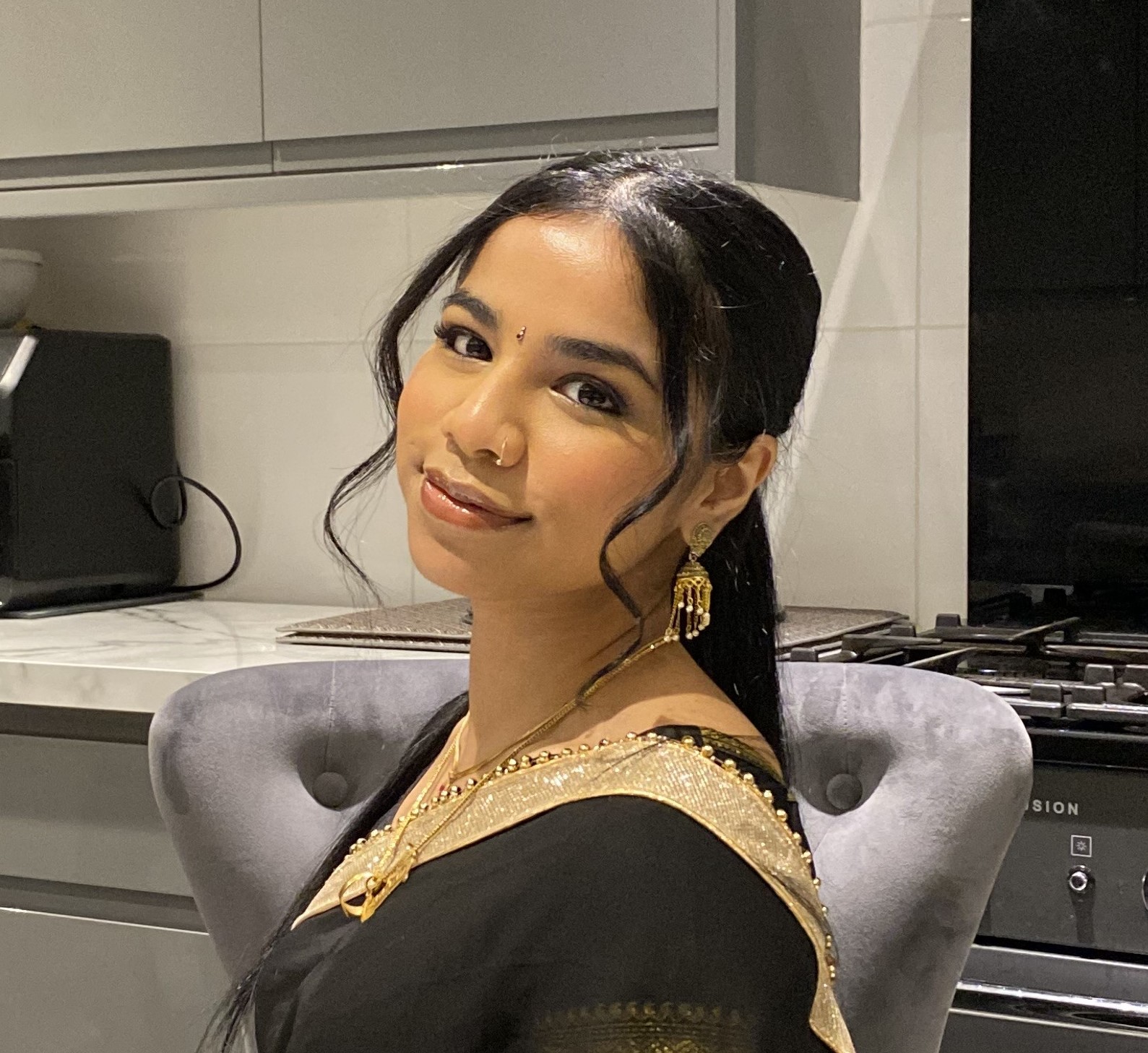Part of the ‘My Story’ series of reflections by Student Success Diversity Mark Officers.
By Raahavy Rasaiya
As a Sri Lankan Tamil student born in Germany and transplanted to the UK at the tender age of eight, I didn’t speak a word of English. The corridors of my new academic environment were filled with predominantly white, unfamiliar faces and an unfamiliar language. The fear of never fitting in was immense. Thus, learning English, assimilating into British culture was a journey of adaptation, a journey of resilience to not succumb to the stereotypes attributed to me because of the colour of my skin. It would become a reflection of my diverse identity. Having earned my degree in law at the University of Kent, I carry with me a profound belief in the importance of diversity within academic settings. Currently pursuing my LLM by research, I have embarked on a journey into the intricate web of history, policies, and practices that shaped the lives of women during the British colonial period in Sri Lanka. To me, diversity wasn’t just a concept; it was a lived experience, it is the appreciation of difference. As a Tamil woman navigating the corridors of academia, I recognised the value of empowering individuals by respecting and appreciating the differences that make each of us unique.
The realisation of the significance of diversifying the curriculum struck me during a particularly challenging Law and Postcolonial Law module. In the midst of this academic crucible, I undertook a formidable 5,000-word research project. Fuelled by my desire to explore a self-formulated question, I delved into the intricate impact of sex and sexuality on women’s identity during colonial and post-colonial eras. My research journey led me to the works of influential scholars like Paul Gilroy and W.E.B. Du Bois, guiding me in comprehensively examining the Black female experience in the context of colonialism and slavery. However, as I delved deeper, I encountered a challenge that resonated personally – the scarcity of inclusion of ethnic female authors in the materials I consulted. Confronting this gap, I critically questioned the appropriateness of relying solely on white male perspectives to understand the experiences of black women during colonial and post-colonial periods. Determined to address this issue, I embarked on an extensive research expedition, scouring databases such as JUSTOR, government reports, HeinOnline, the library, and Google Scholar. In my quest for knowledge, I didn’t stand alone. Collaborating with my seminar leader, I not only highlighted this weakness in my essay but also successfully integrated a diverse range of authors. This infusion of varied perspectives enriched the depth and authenticity of my research, painting a more holistic picture of the historical narrative I sought to unravel.
As a Sri Lankan Tamil student, my unique perspective and experiences were both a strength and a challenge. Reflecting on my role as both a researcher and an ethnic minority student, I understood the importance of acknowledging and overcoming challenges. The scarcity of inclusion of authors who shared my ethnic background prompted me to recognise the need for a more inclusive representation in the academic discourse. My journey, marked by a commitment to inclusivity, diversity, and a relentless pursuit of knowledge, wasn’t just about unravelling historical narratives. It was about bridging the gap between diverse perspectives and contributing to something on a much a grander scale. My journey wasn’t just academic – it was a celebration of diversity and an affirmation of the power of inclusion in shaping a more comprehensive narrative. Through my role as a Diversity Mark Officer I am excited to actively champion support mechanisms that enhance the overall student experience, as well as shining a light on the transformative potential that inclusivity holds within the realm of education.

